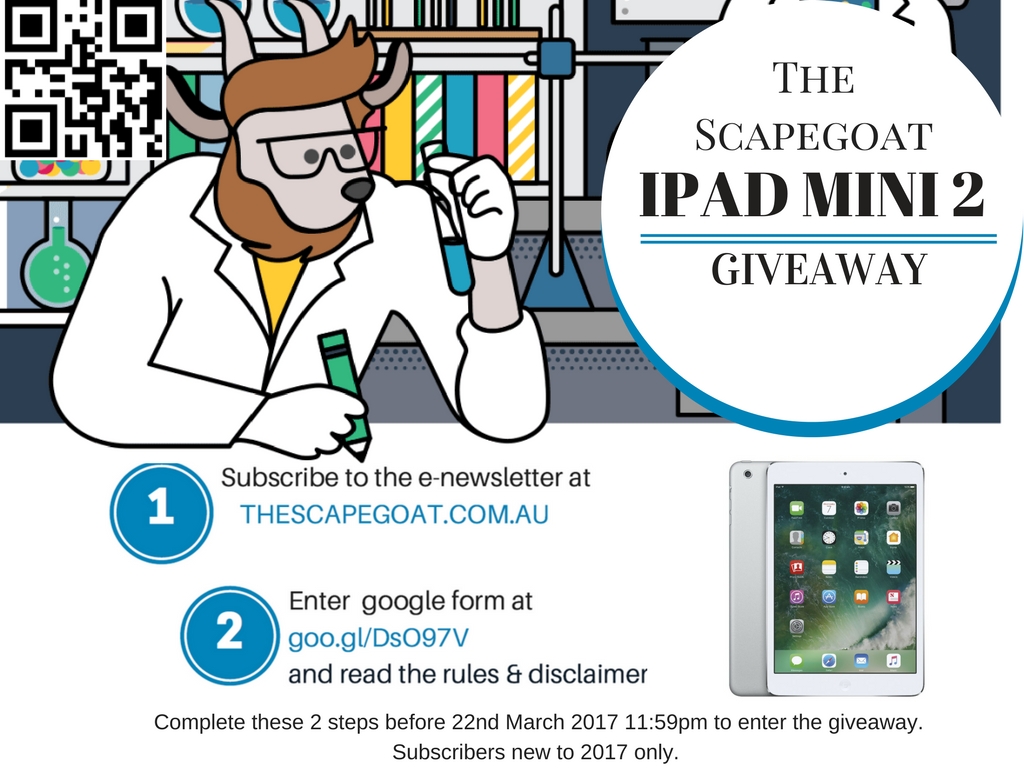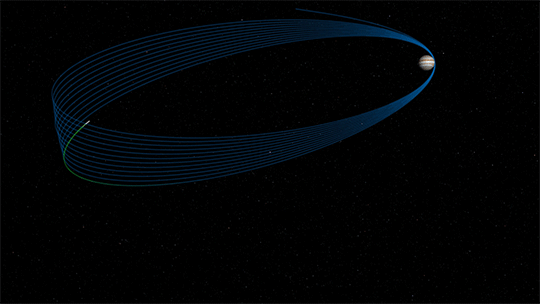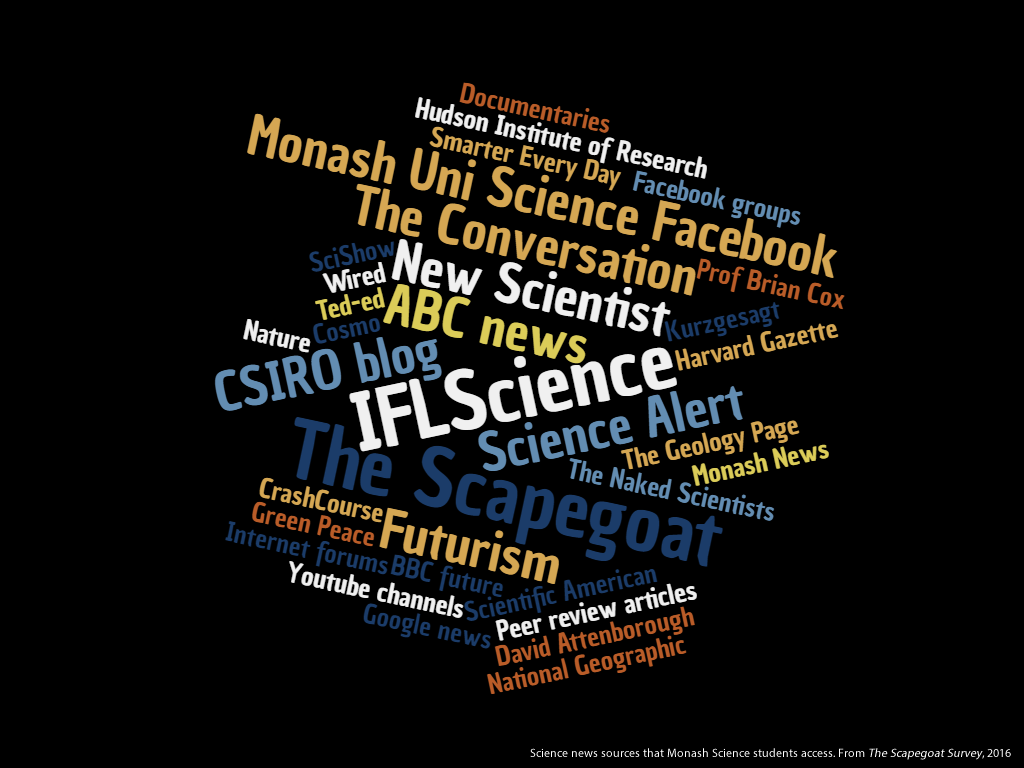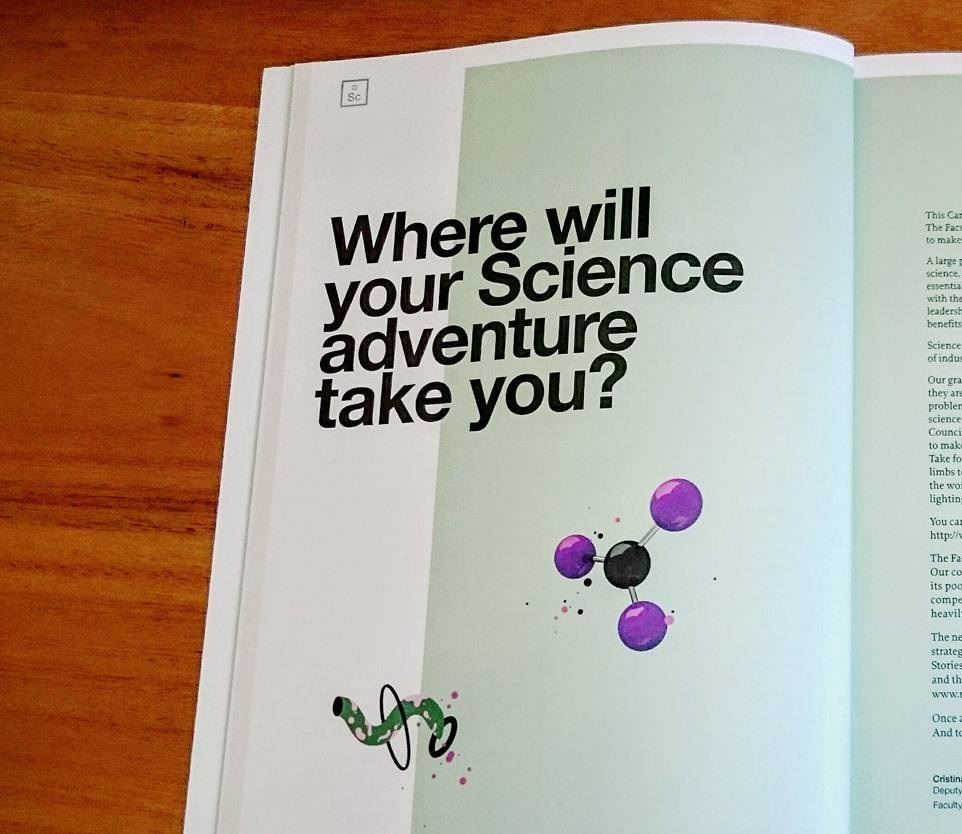Love your science friends & love us?
The Scapegoat is a student-run publication to help new and current students make the most of science at Monash by delivering relevant and reliable information about the latest events and opportunities on campus as well as fun science stories and all manner of student submitted content. We take the form of a weekly e-newsletter as well as keep a blog.
We’re having a iPad Mini 2 Giveaway for our new subscribers (those who subscribed from 1 January 2017). Let your science friends know!











